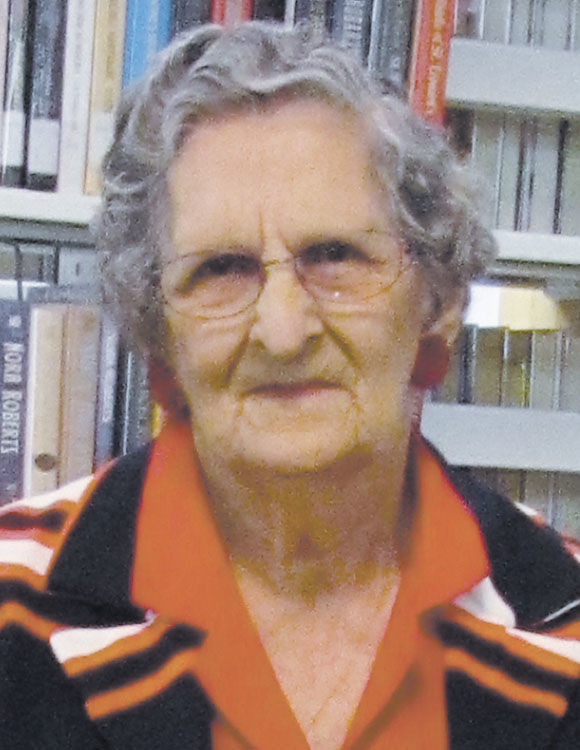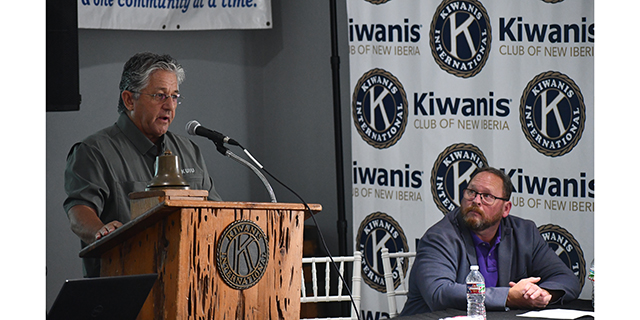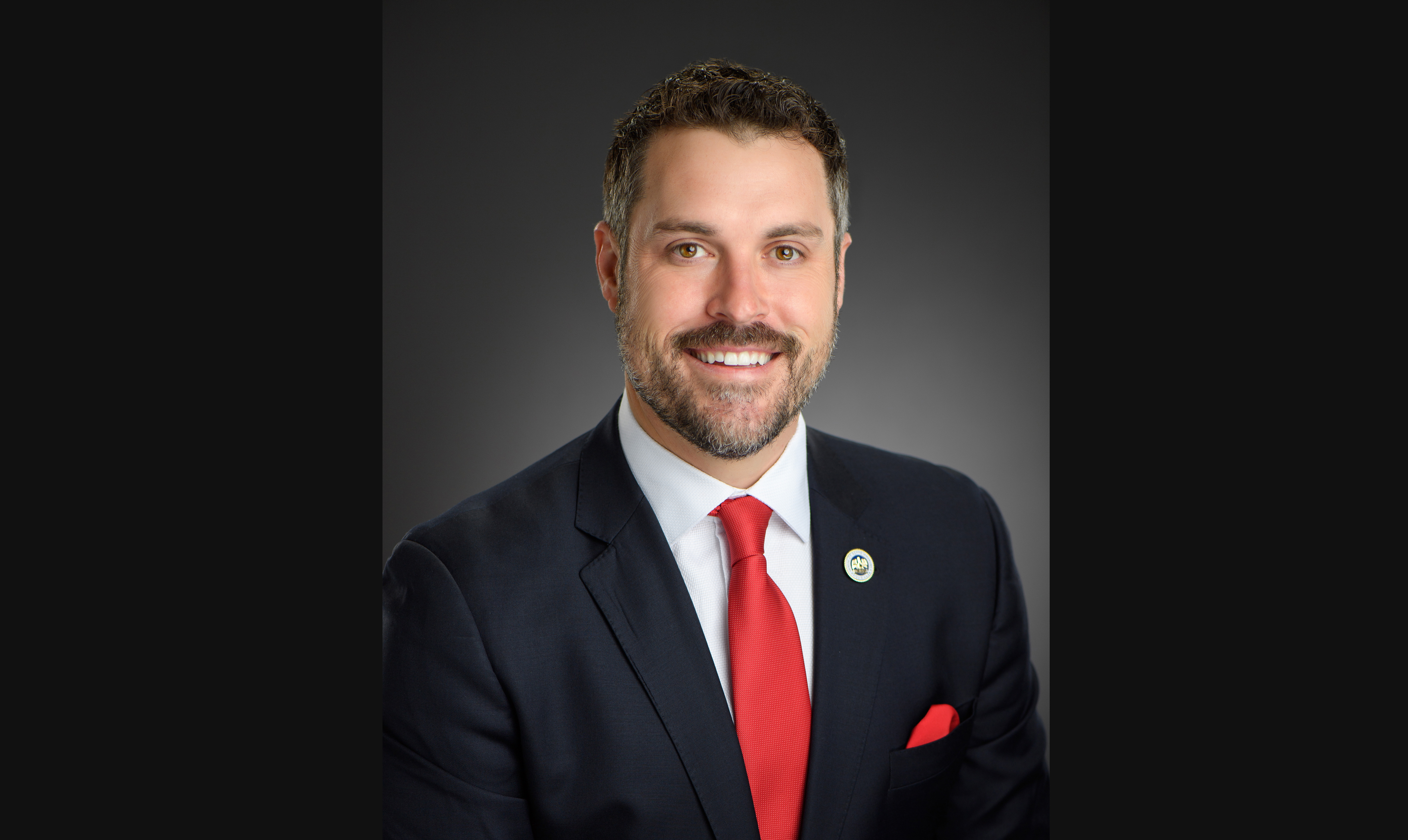Do You Know Your Family’s History?
Published 8:43 am Friday, November 21, 2014

- Do You Know Your Family’s History?
By MIchelle Matthews Calloway
Ah, the holiday season. It’s the perfect time to catch up with friends and family members you haven’t see in a long time. Plus, “holiday food” in Acadiana is the absolute best on the planet. Thanksgiving and Christmas present two wonderful opportunities to eat, drink and be merry, and we do that with ease.
br
Who doesn’t enjoy the time spent sitting around the dinner table or relaxing in the den, swapping stories about which cousin or sibling really broke Mee-Maw’s china teapot, or laughing about old Uncle Joe’s childhood escapades? Whether you’re grinning (or cringing if the embarrassing story is about you) the holidays are an exciting time for making new memories and recalling old ones. This year, astonish everyone around the table when you share more details concerning your family’s history than grandma and grandpa ever thought possible. How? By conducting some research before Tom Turkey is placed in the deep fryer. Keep reading to learn more about the genealogical resources, both paid and free at your disposal.
brbr
Popularity Of Genealogy Research
br
Genealogy research is popular in Acadiana and increasing numbers of people are deciding to embark into the realm of discovering their ancestry. Many are driven by a desire to learn more about their family’s past and still others are motivated by a quest for historical information. Most researchers, professional or personal, would agree that digging through the roots of family trees is fascinating work. St. Martinville Director of Tourism Elaine F. Clément says, “Genealogy research has really taken off in the past 20 years here in Louisiana.” She explains, “What began as a hobby for some is now a full-fledged pursuit of knowing one’s history and roots.”
br
Clément started tracing her own family tree and eventually passed the reigns to her dad and sister. “I started researching our family history years ago and then my dad and my sister took it up,” Clément says. “They surpassed everything I found and now they’ve done almost the entire thing.” Clément attributes her father and sister’s success to the number of available resources used in the search and of course, dogged persistence.
br
br
Fee-based Genealogy Research Databases
br
These days we truly live in an information age. Buoyed by the treasure trove of information available on the Internet, many people simply point and click their way to learning just about everything they want to know. After paying a fee to join, family history and genealogy websites including Ancestry.com, FamilySearch.com and Archives.com can assist you with learning more about your family history.
br
Insider’s tip: “If you don’t want to pay for a subscription, you can access Ancestry.com and Archives.com by visiting one of our local libraries,” says Jane Bulliard, who along with Michelle Broussard founded the Genealogy Workshop held monthly at the Acadian Memorial in St. Martinville. According to Bulliard, libraries subscribe to the service and allow free access to library patrons with a current library card. Some libraries in large metropolitan areas allow patrons remote access from home. Check the library’s website or call for more information.
br
Other noteworthy genealogical databases and resources include those maintained by the Afro-American Historical and Genealogical Society, a membership-based organization accessible at aahgs.org and the Latin American Network Information Center, accessible on the web at lanic.utexas.edu/la/region/genealogy/. For a comprehensive list of genealogical societies covering many ethnicities visit ancestry.com/wiki/index.php?title=List_of_Genealogical_Societies.
br
Should you want to learn even more about your history, the website 23andme.com, touted as “the largest DNA ancestry service in the world” will enable you to obtain details concerning your specific, individualized DNA makeup.
br
br
Free Genealogy Research Databases
br
A study of Louisiana history reveals the story of the Le Grand Dérangement. Translated as “The Great Upheaval” or “The Great Disturbance,” the story describes the expulsion of Acadians taking place from 1755 to 1762. Many of the Acadians settled in Louisiana and tragedy became triumph as these displaced people flourished and prospered.
br
Researcher Thomas Swatloski, who has spent the past 28 years creating a database of Acadian genealogies, says the Acadians fortunately brought their church records with them. Swatloski first became interested in researching French and Acadian families when he became frustrated by the lack of genealogical information available to him when he tried to learn more about his Polish roots. He decided to research his wife’s family instead. He applauds the Acadians’ prudence and foresight in preserving the records of their familial histories. The value the Acadians placed on their church records coupled with extensive academic research now forms the basis for extensive online genealogical databases. These databases are provided free of charge.
br
Information on local families is also available to African-Americans seeking to learn more about their ancestry. As stated aptly on the Acadian Memorial website, “Both Acadians and Africans were uprooted from their homelands, and both contributed to Louisiana’s growth and unique cultures.”
br
br
Church And Civil Records
br
Acadiana is blessed with a literal treasure trove of genealogical information compiled by Rev. Donald J. Hébert, a well-known and beloved Catholic priest. Fr. Hébert obtained permission from the diocese to compile church and civil records indices dating from 1794 to 1920.
br
Fr. Hébert’s works include a 12-volume set of South Louisiana records and a 41-volume set of Southwest Louisiana records. The volumes contain a collection of abstracts from the church and civil records from the south and southwest Louisiana parishes. The records include Catholic and Protestant churches and courthouse records of genealogical and historical value, starting in 1756. A total of 96 publications are attributed to Fr. Hébert.
br
br
“Are You Evangeline’s Cousin?”
br
Acadiana LifeStyle Magazine hosts one of the free databases. Visit the website at acadianalifestyle.com and over to the right of the homepage you’ll see a photo of the statue of Evangeline that is located in St. Martinville near the St. Martin de Tours Catholic Church. Imprinted on the photo is a compelling headline and question: “Are You Evangeline’s Cousin?”
br
Click Evangeline’s photo for immediate access to one of the most comprehensive genealogical databases available, specifically designed for persons seeking to trace their Acadian roots. The database is composed of over 28 years of research data complied by Swatloski. At press time the database consisted of 586,208 individual’s names, 39,455 surnames and 227,283 families. Accessing or using the database is completely free to anyone. Swatloski encourages African-Americans to access the Evangeline database and to also review records complied by Fr. Hébert. The first African-American Catholic church was founded in Louisiana in 1841, however prior to that time babies in South and Southwest Louisiana were taken to area Catholic churches for christening. “In New Iberia, many African-Americans were also buried in the cemetery at St. Peter’s Catholic Church,” says Swatloski.
br
The Evangeline database is so comprehensive that many people have been able to trace their family trees as far back as biblical times! We invite you to go to our website, click on the picture of Evangeline and follow the easy prompts. Who knows how far back you may be able to go?
brbr
Ensemble Encore – Acadian Memorial Archive
br
St. Martinville is the home of the Acadian Memorial Museum and the Acadian Memorial database is the world’s most comprehensive source of biographical information regarding the Acadian exiles that migrated to Louisiana. Ensemble Encore, a database of Acadian genealogical records available in the Acadian Memorial Archive contains the fruit of scholarly research conducted by Dr. Carl Brasseaux, who received a doctorate in North American studies at the Université de Paris. In June 2010, Brasseaux retired as director of the Center for Louisiana Studies, director of the Center for Cultural and Eco-Tourism, director of the Press, professor of history and managing editor of Louisiana History–all at the University of Louisiana at Lafayette.
br
Brasseaux is the author of more than 35 volumes and more than 100 scholarly articles on Louisiana and French North America. “His work is available to all who want to access it,” says Clément.
br
The database includes research under the following categories: essays, family names, lifelines (biographical sketches), land grants, Cajun roots and maps. A glossary, guide to sources and bibliography are also provided.
br
br
Tips From A “Home Grown” Expert
br
In addition to the fruit of genealogical research provided by members of academic society and historians, we are blessed to enjoy the expertise of individuals heralded as “home-grown experts.”
br
So what if you’re not academically trained? Don’t be intimidated; all you need is a keen interest in family history just like 86-year-old Frances Doga of Rayne. A member of St. Martinville’s Genealogy Workshop, Doga became interested in tracing her family’s genealogy when she was in her 20s. “I was doing research on genealogies long before it became popular like it is now,” she laughs.
br
Doga is self-taught in the art of researching genealogies. Down through the years she has amassed hundreds of volumes of family histories. She joyfully accepts phone calls from people living throughout the United States and willingly helps families trace their ancestry.
br
When asked for tips on tracing one’s ancestry, Doga says, “Ask your grandma about her people.” According to Doga, elderly family members usually remember the names of their grandparents and great-grandparents, affording modern-day researchers a head start. Grandma and Grandpa are also good sources to ask for details concerning family “legends” and stories. Be sure to jot down names and look for connecting details involving other family members.
br
Doga also advises looking through old family obituaries, which are often a valuable source of data concerning parentage, marriages, siblings’ and grandchildren’s names. A family Bible is another good resource.
br
“Don’t be afraid to call people and ask questions,” advises Doga. According to Doga, in over 60 years of researching she has only had three people refuse to provide the information she requested.
br
Don’t Give Up!
br
Bulliard, Clément, Swatloski and Doga each agree that tracing one’s family history is like solving a puzzle. Swatloski, who at one time became frustrated and discouraged concerning his search for paternal ancestry, eventually discovered additional information. “Once you start putting the pieces together, they eventually all come together,” Swatloski says cheerfully. “Just keep at it, and don’t give up.”





